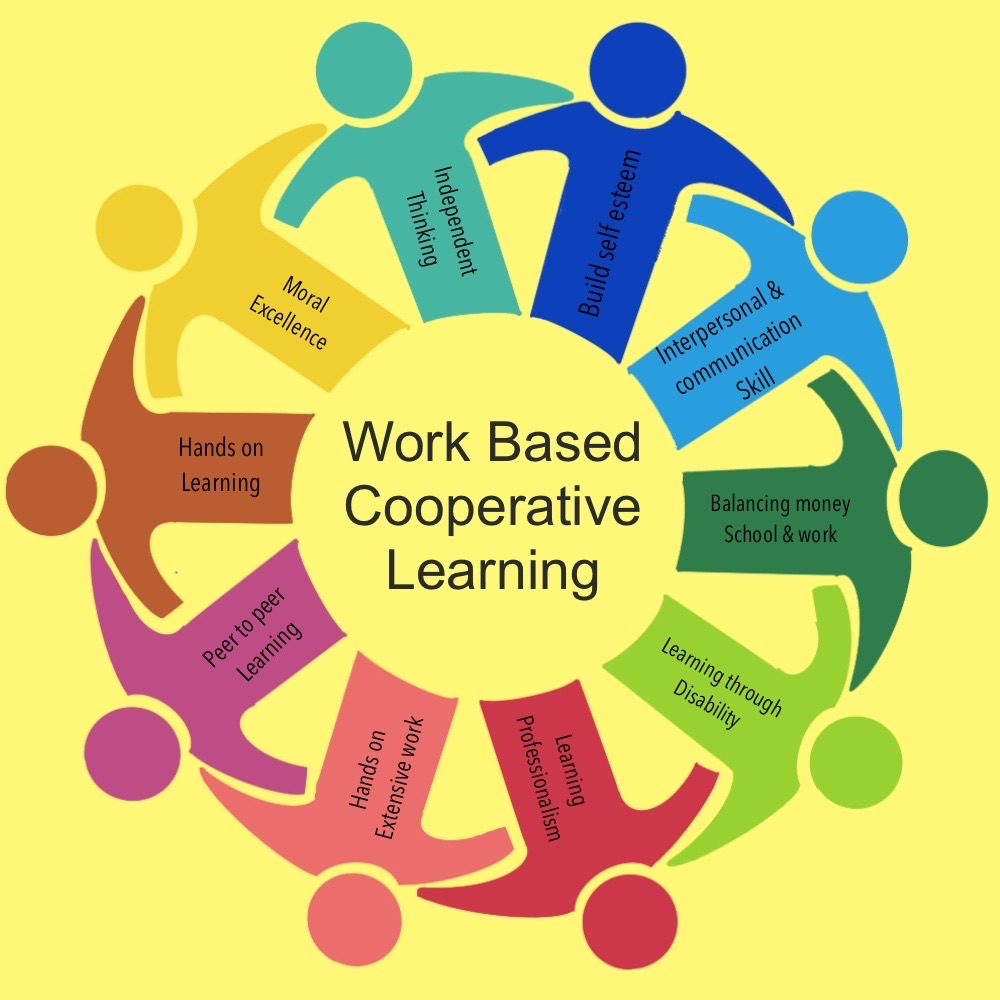For a successful career, school districts should consider incorporating work-based cooperative learning where all students have access to a part-time job or academic project. According to Acho, “One of the fundamental goals of education is to equip students with knowledge and skills necessary to think critically, solve complex problems, and succeed in the 21st century society and economy.” (Acho, 2023, 304)
Work-based learning allows students to break out of their comfort zones and work alongside their peers. Cooperative learning teaches students practical skills besides doing normal homework assignments and listening to classroom lectures; this, they learn what activities they are good at and get to apply their knowledge early in a real job. Beckingham tells us, “Work experience can be both paid and unpaid. Opportunities to work within an organization closely related to the subject discipline can provide access to develop the broadest set of skills. However, much can be gained through engaging with part-time work, volunteering, and extracurricular activities as important transferable soft skills can be developed and evidenced ” (Beckingham, 2023, 227-228). The position will show them how to network with employers, meet new coworkers, and build self-esteem and interpersonal and face-to-face communication skills without always relying on posting to social media in order to communicate. Students need to learn how to actually speak face-to-face with one another.
Students will work only 5 to 10 hours a week. Part-time employment will alleviate the interference with their academic courses. Students will earn minimum wage only. Students who are 15 or under will have to have a parent’s or guardian’s written consent.
Beckingham reiterated the types of skills students learn by participating in work-based learning. She states, “Skills identified included: communication skills, numeracy, information technology, learning how to learn/personal development planning, problem-solving, and team-working.” (Beckingham, 2023, 222)

The advantages of work-based learning are money management, including paying bills and budgeting, and school and work-life balance, especially for teen parents. If the students are special needs, they will learn how to cope with frustration over their disabilities by understanding their symptoms and working at their own pace. If students do not have transportation to their jobs, the school will have special buses designated for student workers to be picked up and driven to and from work.
Students who participate in work-based learning will learn how to work in difficult situations. In the workforce, whether as a volunteer or paid employee, you will have co-workers you disagree with. It teaches students professionalism and respect for your supervisor, co-workers, and learning your job so you can perform well. Students can go into so many areas that require internships like Nursing, Welding, CDL Truck Driving, Cosmetology, IT Networking, Customer Service Representative at a Call Center, Teacher Assistant and so on.
A foundation in a work-based model is what educators need to implement. It will not only teach motivation but also independent thinking and moral excellence. Educators are the ones who know what it is like to be a struggling student trying to find a career path that fits them, stressing to stay in school when you may not relate to the content being taught. A career shows students why they need to know, for example, math so they can count money, or English so they communicate effectively on the job and know how to express themselves correctly everywhere they go. Work-based learning gives students that extra push and drive they need to finish high school.
In conclusion, students can ask their employer questions, have a solid resume, build a network of contacts, and learn time management. It will prevent idleness and dropping out of school.
Hands-on learning and extensive, committed work experience is what many employers look for. Sometimes, a degree is not enough, but seeing you can stay committed to a job is what many companies see as successful. Hiring candidates who are enthusiastic about their job and learn the job quickly after training, whether they are paid or not, is what gives the employee confidence. This gives the employer confidence as well because it shows them that who they hire has the potential to succeed. This simple truth is how successful candidates stay hired.
Read more education-related articles on our Zealousness blog Education – iN Education Inc. (ineducationonline.org).
References
- Acho, Philip Indo, Einstein, Moses Egbe Anti, Nashua Sarah Mboshi, and Nana Celestin. “The Impact of Cooperative Learning Strategies on the Development of Students’ Critical Thinking Skills in History. The Case of Secondary and High Schools in the Buea Municipality.” (2023).
- Beckingham, Sue. “Baseline skills scaffolding soft skills development within the curriculum. In Higher Education Computer Science: A Manual of Practical Approaches, pp 253-274. Cham: Springer International Publishing, 2023.























